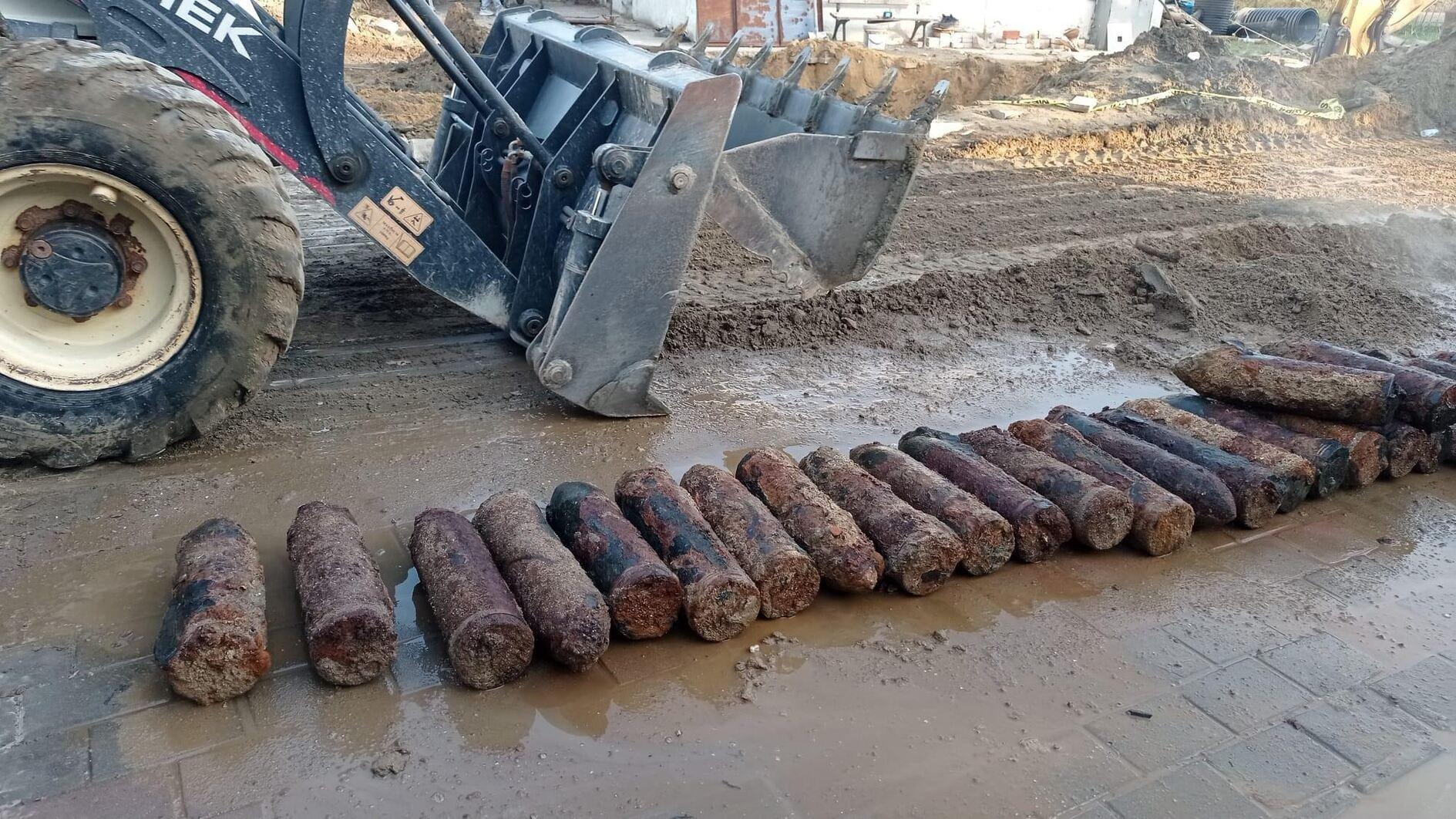
Fifty unexploded artillery shells, thought to be from the Dardanelles Campaign of World War I, have been discovered during sewage renovations in the northwestern province of Çanakkale's Gallipoli district.
Following notifications from workers at the site, police and gendarmerie units arrived and cordoned off the excavation area.
Subsequently, the workers carefully retrieved the artillery shells from the ground in a controlled manner.
The recently unearthed artillery shells will be transported to the Çanakkale Wars Gallipoli Historical Site Directorate for an examination of their technical and historical characteristics.
The Dardanelles Campaign was a World War I operation that took place on the Gallipoli Peninsula in the Ottoman Empire, lasting from April 1915 to January 1916.
It marked a pivotal triumph for the Ottoman Empire, remembered as the Çanakkale Victory and Martyrs’ Day today.
The victory followed a months-long struggle, during which Ottoman forces endured heavy losses while defending the Turkish shores from the invading Allied forces in the northwestern province.
The campaign ultimately made history as the last great victory of the ailing empire, while the victory epitomized the first significant emergence of Mustafa Kemal Atatürk, the founding leader of modern Türkiye, onto the world stage.
Unexploded artillery shells dating back to this legendary campaign have been discovered at various times in the province, with one such instance occurring during restoration works at Seddülbahir Castle in 2018.
Recently, a Gallipoli War badge was also discovered during excavation works at Amida Höyük, considered the "heart of Diyarbakır," a city in southeastern Türkiye.